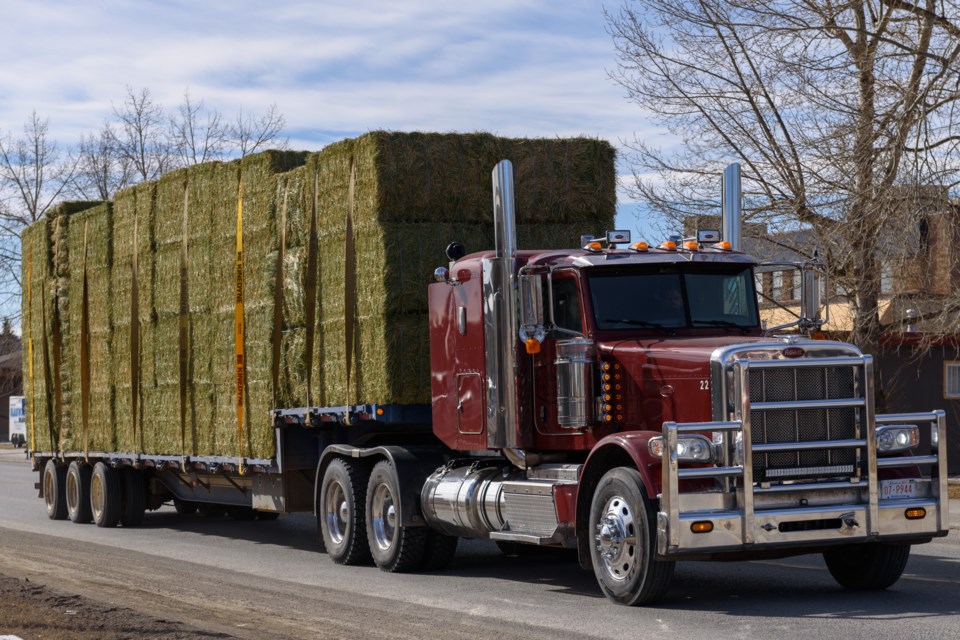ATHABASCA – Five years after the introduction of the Mandatory Entry Level Trucking (MELT) program in Alberta, the provincial government has cleared a new road for professional truck drivers, which is drawing mixed reactions from trucking companies.
According to a March 27 press release from the Ministry of Transportation and Economic Corridors, insurance claims from Class 1 drivers — the license required to operate a semi-truck — have risen since the introduction of the program in 2019.
“This is a proactive approach to ensure truck drivers in Alberta have the right training with the right vehicle to perform their jobs professionally and safely,” said Minister of Transportation and Economic Corridors Devin Dreeshan.
“This new learning pathway provides more appropriate training for drivers and ensures Alberta’s truck drivers are the best-trained in the country.”
The province is hoping the new regulation, which is an apprenticeship-style model with a Red Seal designation at the end, will allow drivers to get on-the-job training, an aspect critics say MELT lacked.
Alberta’s Budget 2024 will invest $41 million over the next three years to set up a grant to support the new pathway, with the program expected to begin in March 2025.
Locals weigh in
Reactions from local companies impacted by the changes were mixed. Green Leaf Fuel Inc., a Boyle-based company that specializes in bulk load transportation, said it didn’t have many options for inexperienced drivers due to safety concerns, but it recognized the need for more qualified drivers across the industry.
“We’re a little bit unique. We’re a family-owned company that doesn’t hire a lot of new drivers,” said Rod Veremy, co-owner of Green Leaf. “There’s certainly a shortage of younger employee base coming up the ranks — it’s an aging industry and I think that’s the biggest fear for everybody.”
Veremy said formal recognition would be a big deal in the industry, which has had a tough time attracting younger workers.
“If the image changes that this is a profession, that would only help us.”
Jim Szmyrko, owner and operator of another Boyle-area company, All Night Trucking, said the announcement could be problematic for smaller companies who may not be able to afford training.
“The trucking industry is a very tight industry; the money isn’t there. The companies can’t afford to train these people,” said Szmyrko.
The MELT program takes 113 hours to complete, not including an additional air brake program, which requires eight-and-a-half hours itself. Driver training schools are not allowed to charge more than $10,000 for MELT courses.
Alberta’s Budget 2024 will invest $41 million over the next three years to set up a grant to support the new pathway, with the program expected to begin in March 2025.
Agricultural impacts
The other half of the announcement piqued the interest of local farmers, including Athabasca District Agriculture Society president Camille Wallach. Though they still have to pass the licensing exam like a commercial driver, it exempts provincial farmers and their immediate families from the pre-licence training.
“It’s 100 hours in a truck plus a week of school, so I think that’s where a lot of people, including younger farmers, haven’t bothered to get their Class 1,” said Wallach. “This now takes that away; they can challenge the test, which is great. It gives them a little more flexibility to use their own equipment.”
The farm-restricted Class 1 licence, implemented April 1, will allow farmers and their families to operate Class 1 vehicles in the province for authorized farm purposes only. Farmers who are eligible for the restricted licence must still complete a knowledge test, road test, and vision screening, as well as submit a medical assessment to demonstrate their ability to safely drive a Class 1 vehicle.
“I think this is a great option. There are a lot of farmers who already have their Class 1, but for the next generation of young farmers,” said Wallach.


